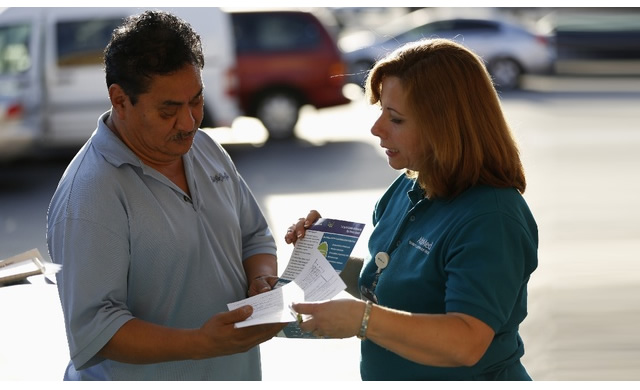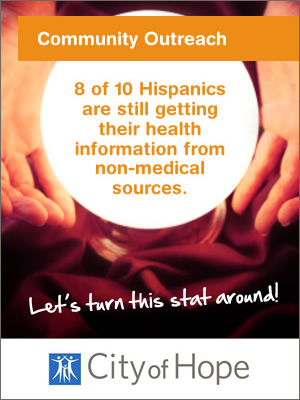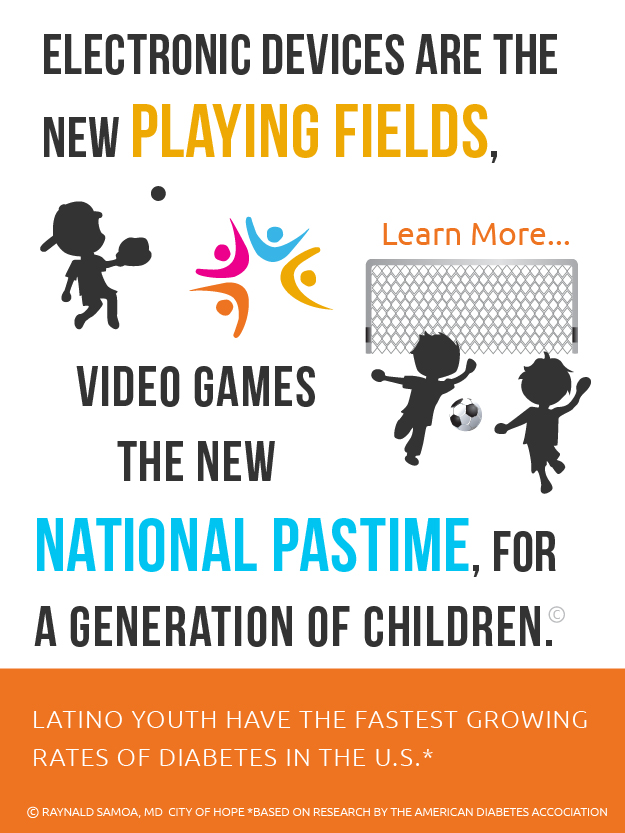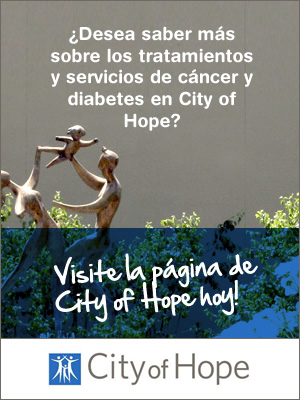
Why Many Latinos Dread Going to the Doctor
06/03/2014 05:57PM | 11769 viewsHow cultural barriers can be more important than income
Recent studies have found that Latinos are the racial and ethnic group least likely to visit the doctor. More than one-fourth of Latino adults in the United States lack a usual healthcare provider and almost half of Latinos never visit a medical professional during the course of the year. Other reports show that Latinos are more likely than members of other groups to delay healthcare for an illness or drop out of treatment when symptoms disappear.
Meanwhile, Latinos in some states were reluctant to sign up for the Obamacare exchanges. With Latinos accounting for one-third of the uninsured in the country, healthcare advocates have puzzled over why Latinos seem hesitant to seek healthcare.
A Pew Hispanic Center Study found that half of Latinos who did not seek medical care had a high-school education, a third were American-born, and 45 percent had insurance.
There are the obvious obstacles: Around one quarter of Latino adults in the U.S. are undocumented, making them unable to qualify for Medicaid or other government benefits. Even with President Obama emphasizing that information provided when applying for Obamacare would not be transferred to immigration services, the 5.5 million American-born children of undocumented parents may find their families avoiding Obamacare sign-ups out of fear of exposing their status.
A language barrier also discourages some Latinos from asking for help, or from understanding the healthcare information available. And for the many Latinos working low-wage jobs or who are self-employed, employment status disqualifies them from public health programs while still not providing enough income for them to afford quality care.
These significant barriers partially explain Latino healthcare disparities, but they don’t tell the complete story. As a Latina growing up in a middle-class immigrant Mexican and Ecuadorian family, I saw Latinos who had the privilege of steady income, education, and familiarity with the English language still feel hesitant about receiving healthcare. My brother, who works at a company that doesn’t provide him with health insurance, has gone seven years without seeing a doctor. One friend’s mother, who holds a Ph.D. and has lived in the United States for more than 30 years, still needed her daughter’s urging to visit a doctor and discuss her lengthy battle with depression. Even I have hesitated to apply for health insurance during my time working as a freelance writer. I have spent the past 15 months without it.
A Pew Hispanic Center study found that half of the Latinos who did not seek medical care had a high-school education, a third were American-born, and 45 percent had health insurance. This suggests that the Latino apprehension about healthcare goes deeper than issues of access. It also partially derives from a long history of preferring non-Western medicine, a cultural uneasiness with the American style of healthcare, and a tradition of privacy and individual pride that makes many Latinos believe we have no need to ask for help.
A 2013 Colorado survey found that 45 percent of Latinos rely on home remedies to avoid medical costs. A 2012 Census Bureau report also found that 72 percent of Hispanics never use prescription drugs. Latinos—particularly those from indigenous backgrounds—have an established history of using natural medicine. When I recently visited the town of Rio Blanco, Ecuador, in the Amazonas region of the country, our local guide showed us plants his community used for every health issue imaginable: stomachaches, headaches, muscle pain, anxiety—even birth control and abortion.
While visiting Peru, I observed how locals treated common ailments like altitude sickness with a tea made of coca leaves, in place of Western medications like Diamox. And in Ecuador, I observed my aunt’s housekeeper using oregano tea to help with menstrual cramps. These traditions still hold strong in many parts of Latin America today, providing many Latinos with a family custom of treating yourself without a professional doctor’s help.
My Mexican grandmother owned a natural health store for years, and she’d make her own medicine from herbal ingredients that we’d use whenever we got sick. We also used other natural methods, like curing colds with orange juice and Echinacea pills and digestive issues with papaya. To this day, I have never used Nyquil, Pepto-Bismol, Aleve, or many other popular American products. Even as an adult, I still hesitate to take any American medication without first asking my family for traditional alternatives.
These natural medicines can be risky and ineffective, but regardless, Latinos often feel more comfortable using them. As a result, many Latinos have created a network of alternative health practitioners that we often trust more than Western doctors.
“There’s greater trust for what has worked for your family or what you’ve heard has worked for others in your community. So then, when Latinos have a health concern, many may think ‘Oh well, my Tia told me about this tea you can drink … ’ and that replaces Western medical advice,” says Marisa Salcines, the co-founder of Healthyhispanicliving.com, a website that aims to develop culturally relevant health content for the Latino community.
Latinos’ trust in Western healthcare diminishes even more when doctors don’t approach Latino patients in the way they expect. For many Latinos, a doctor-patient relationship needs to feel personal, welcoming, and concerned for the individual as a whole. This makes the American healthcare setting, in which doctors often rush visits and lack time to establish relationships with patients, seem untrustworthy.
“Most American healthcare deals with a kind of factory approach where you’re in and out and that’s that,” says Salcines. “But for Latinos, we value having a relationship with our doctors.”
"Latinas' willingness to disclose information decreased if they did not sense that their physician was compassionate."
A 2008 study that interviewed 28 Latinas about their experiences with American healthcare supported this claim. One interviewee, explaining her recent visit with a doctor, said, “I didn’t feel comfortable with him, the meeting was too short and fast … he didn’t pay attention to what I was saying, he didn’t ask me my name, and he didn’t introduce himself. He went directly to check me. It was the most uncomfortable situation.”
Twenty-six of the women said the amount of information they disclosed to their doctor depended on “developing a trusting relationship with their physician based on mutual respect.” The researchers wrote that, “for these women, their willingness to disclose information decreased if they did not sense that their physician was compassionate.”
I relate to these women’s concerns. I’ve never felt quite comfortable with most doctors’ styles, and I often leave visits frustrated that the doctor asked little about me, prescribed medication quickly, and didn’t bother getting to know more about my situation as a whole. I always mentally compare these experiences to the comfort and familiarity of my grandmother’s remedies. As a generally-healthy young adult, this is one of the reasons I feel unmotivated to apply for healthcare.
Discomfort with doctors also intensifies when the health topic is culturally taboo, like sexual health or mental illness. Latino males are almost 2.5 times more likely than whites to have HIV and Latina females are five times more likely than whites to experience teen pregnancy. Yet stigma around the subject prevents patients from talking about it. In the 2008 study of Latina women, interviewees said their culture “regarded sex as a personal, intimate issue to be discussed only with one’s partner and sometimes not even then.” During my visits with gynecologists, I am always surprised by how openly doctors expect me to discuss issues I’ve been raised to believe are private.
For mental health, reactions are similar. A 2001 Surgeon General's reportfound that only 10 percent of Latinos with a psychological disorder contact a mental health specialist. Often this is because Latinos aren’t familiar with mental health issues, nor comfortable talking about them. Some members of my family don’t know what “anxiety disorder” or “depression” truly mean. Instead, they often simply say that a family member is “not right” or “not well,” and consider it a phase that will pass with individual effort.
When healthcare professionals don’t share our same background, we are even less comfortable asking for help. Latinos represent more than 16 percent of the population, yet only 5 percent of physicians. In 2011, only 15 percent of students entering medical school were black or Latino. In heavily Hispanic states like California, Texas, and New Mexico, this gap becomes even more significant.
Our cultural emphasis on trust makes having a doctor we can relate to even more crucial. Salcines recalled how her Cuban mother would wait five hours in a waiting room to see a Latino doctor, rather than visit a non-Hispanic physician: “There’s a level of confianza or trust that you feel with someone Hispanic. It just gives you an instant feeling of, ‘Okay, I can tell this person what I really feel.’”
Healthcare professionals need to be aware of the cultural values that Latino patients find significant, as well as emphasize health education programs in Latino communities.
With all these cultural influences involved, when medical care is not reasonably priced, even middle-class Latinos will feel disinclined to pursue it. My own middle-class family often weighed the necessity of visiting doctors against the money we’d save by staying at home.
The frustrating result from all this is that many Latinos may not receive the care they actually need. A third of Latinos have diabetes, and as many as half are not aware of how to treat it.According to the FDA, Latinos have worse diabetes control than other groups and are more likely to experience complications from the disease.
Even among the generally healthy, not addressing Latinos’ attitudes toward healthcare puts our demographic at a disadvantage. Without visiting doctors, we are not accessing information that could change our daily health decisions or getting the preventative care we need.
Healthcare workers can address these issues by offering their services on a sliding scale and translating health information into Spanish. But healthcare professionals also need to be aware of the cultural values that Latino patients find significant. They need to focus on building relationships with patients and understanding their background, as well as emphasizing health education programs in Latino communities.
Having more Latino doctors would also help alleviate these concerns. Reports suggest that once Latino and black students become doctors, they are more willing than other groups to practice in underserved areas. But in pre-med programs, many Latino students often lack the prerequisite courses to succeed, like Advanced Placement Chemistry and Biology. They also often lack mentors to help navigate the medical-school application process. And the staggering price of medical school can make this career choice seem daunting. Providing more support for Latino students facing these challenges would ultimately allow them to contribute their essential background knowledge to the medical field.
The diversity within the Latino community means that addressing their healthcare issues is going to take more than a few, simple solutions. If healthcare providers want to attract the more than 50 million Latinos who live in the United States, they need to commit to learning about our diverse community and its multifaceted culture. They can start by recruiting Latino professionals who can provide personal insight about how to help them best.











Post your Comment
Please login or sign up to comment
Comments